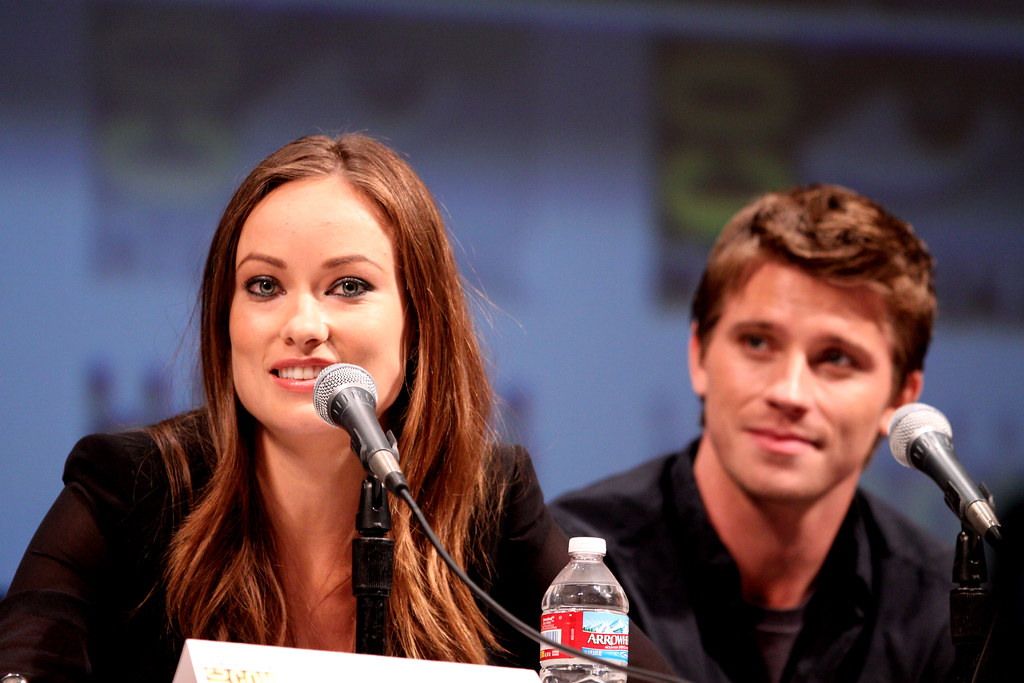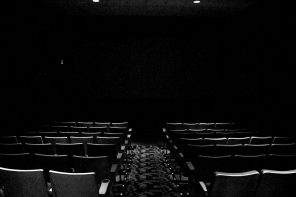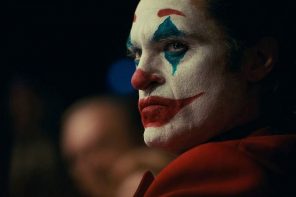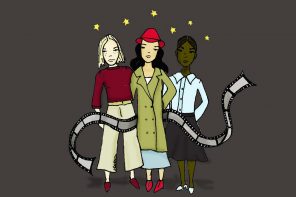Why do people love to hate Olivia Wilde? When you search her name, “Olivia Wilde incel” comes up as one of the first suggestions. A brief scan of Don’t Worry Darling reviews come up with scathing commentary which, for a movie that received so much pre-emptive negative press such as “Don’t Worry Darling, has been making headlines since it began production all the way back in 2020, and not always for the right reasons,” feels targeted. It’s important to recall that Wilde’s directorial debut, Booksmart, received critical acclaim and holds a “96% approval rating.” In contrast to what social media will have you think, Wilde is an accomplished actress and director. Sadly for her, it’s unlikely that any films she makes in the future will be awarded the opportunity for success that they may deserve.
Much of the hate toward Wilde circles her relationship with Harry Styles, ex-One Direction singer and current solo artist, with focus on the age-old charter of blaming the woman, not the man. Articles have portrayed Wilde as some kind of witch seducing Styles, whilst holding her accountable for every awkward moment throughout the Don’t Worry Darling press tours regardless of whether or not she was present.
Claims that Wilde’s relationship with Styles’ started whilst she was still married to Jason Sudiekis only added fuel to the fire. Although infidelity is not to be excused, it’s not exactly a rarity in Hollywood, especially among men –– yet it doesn’t usually damage their careers in the same way. The rumoured affair empowered the public to question Wilde’s ability as a mother and director, painting Sudiekis as the heart-broken ‘nice-guy’. The media enjoys to tell stories and paint narratives around people and relationships based on nothing more than rumour.
The rumoured affair empowered the public to question Wilde’s ability as a mother and director…
All the while it’s important to remember that these accusations did not touch Styles’ career, his new album was released amid the publicity on the 20th May 2022 and was nominated for a Brit Award and an AMA. Perhaps the negative press affected his acting career but then again, his performance in Don’t Worry Darlings was probably the movie’s principal downfall.
The media has also enjoyed creating a public inquest into whether Florence Pugh, the leading actress in Don’t Worry Darling, and Wilde had a falling out, often citing social media silence on Pugh’s part as evidence. When have the social media posts or lack thereof from male celebrities ever been used as fuel for rumours of a disagreement? Reducing women to having to either be ‘best friends’ or ‘enemies’ is symbolic of the way that the media and society as a whole still view female relationships.
Stacking up the list of Wilde’s ‘crimes’ surmounts to, at most, controversial hiring decisions and perhaps a lack of likeability. There are many male directors who have committed actual crimes, aren’t particularly personable, and yet don’t seem to suffer at the hand of public opinion in the same way. The popular discourse surrounding Wilde is violently misogynistic and calls into question the para-social nature of people’s relationships with celebrities – I’m looking at you Harry Styles fans.
Reducing women to having to either be ‘best friends’ or ‘enemies’ is symbolic of the way that the media and society as a whole still view female relationships.
This isn’t the only time that the public vilified women in 2022. The Johnny Depp vs. Amber Heard trial had the whole of Instagram and TikTok claiming they knew that Heard was lying and Depp was in the right. How the public feel like they have any credible say in the matter is beyond reason. Furthermore, commentary on the trial discussed everything from Heard’s outfit choices to mannerisms; since when has the public been capable of interpreting behaviour? The actual outcome of the trial proved both participants to be guilty of defamation, yet much of the discourse surrounding Heard was accusatory whilst promoting Depp to a redeemed figure. What is even more disturbing is the acceptance of TikToks and Instagram posts mocking Heard speaking about suffering from domestic violence, which doesn’t bid well for victims who will now feel less empowered to speak out about their suffering because of the fear of being humiliated in the public eye.
This isn’t about whether Amber Heard is a ‘good’ person — a much more contestable subject — or if Olivia Wilde is personable and morally upstanding, but rather about why are ‘cancelled’ women treated so differently to equally (and at times perhaps more) problematic men?
The prosecution of women in the court of public opinion is far less forgiving than that of their male counterparts.
Kevin Spacey, accused of sexual misconduct and assault multiple times, set to face trial in June of this year, just won a lifetime achievement award in Italy. When accepting his award, Spacey thanked the Italian National Museum of Cinema, who awarded him, for having ‘le palle’ (the balls) to invite him to the event. The power that Spacey has, being able to joke about the allegations surrounding him whilst Wilde is attacked for defending herself and her movie, speaks to the misogyny in Hollywood. The minefield surrounding allegations against Woody Allen merely meant that his movie release of A Rainy Day in New York was delayed during the MeToo movement, and this is accounting for the fact that the accusations against him had been in the light for years. Furthermore, conversation around these men hardly extended past their crimes whilst the women previously discussed had everything from their dress-sense to their past relationships ridiculed. The prosecution of women in the court of public opinion is far less forgiving than that of their male counterparts.
No matter how far we have come, women’s positions in the public eye are more precarious than men. For women to have a successful career in the public domain, they must be perfectly likeable, never step out of line and, god forbid, stay clear of dating anyone with a devoted fandom. One misstep and their careers are completely over. This isn’t to say that women shouldn’t be held accountable for their problematic actions, but there needs to be greater equality regarding the standard of judgement we hold celebrities to.






